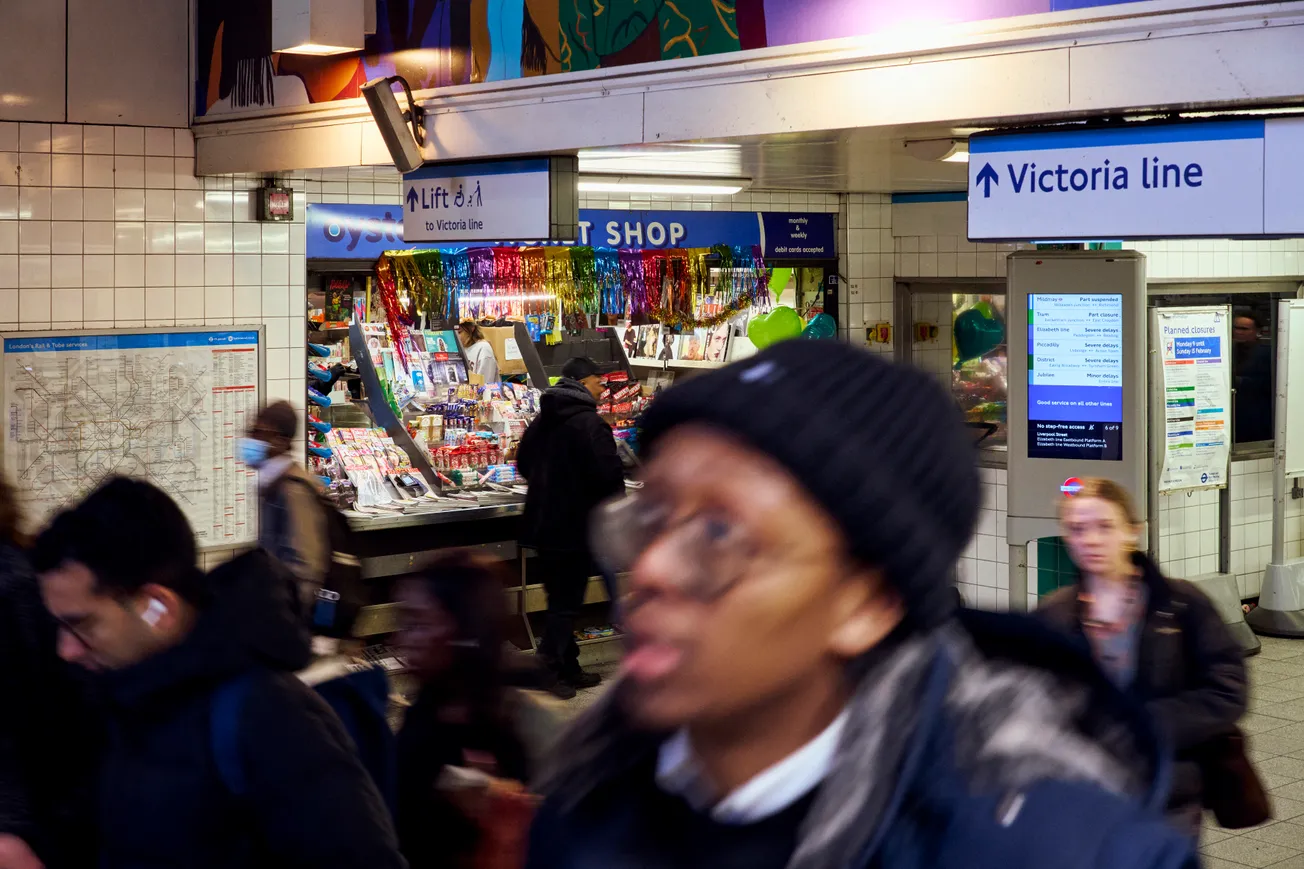Dear Londoners — last week marked the end of nights of frantic worrying, as students across the country finally received their exam results. And sighs of relief (and shouts of joy) were nowhere more likely to happen than in London, where one-in-three pupils gained A* or A grades — conclusively outperforming the rest of the country. But why are children in the capital racing ahead of their schoolmates in other regions? It isn't as simple as it might seem — and we dug deep on why.
Also in today's briefing: Chelsea and Westminster hospitals are using AI, the Real Housewives of London are here and Alan Bennett opines on Westminster Abbey. Enjoy!
Welcome to The Londoner, a brand-new magazine all about the capital. Sign up to our mailing list to get two completely free editions of The Londoner every week: a Monday briefing like this one, full of everything you need to know about that’s going on in the city; and a high-quality, in-depth weekend long-read.
No ads, no gimmicks: just click the button below and get our unique brand of local journalism straight to your inbox.
Big story: Why are London’s students getting much higher grades than everywhere else?
Top line: London’s schools outperformed the rest of the country in last week's A-Level results. Is it just the result of regional inequality or is there something else driving London’s unbridled academic success?
Background: A-Level results day last week was a victory for London schools, with one-in-three pupils gaining A* or A grades. But it also outlined a huge and growing regional inequality in the country: fewer than one-in-four pupils achieved those grades in the North East, for example.
What’s causing it?: It might be easy to presume it has always been this way, or that the results are just the end point of the economic inequality between London and the rest of the country. After all, it’s well established that social determinants like poverty and wealth play a huge role in determining academic outcomes — and London’s economic productivity per capita is over twice that of areas like the West Midlands, with the gap only widening.
But if that were the whole story, why did Tower Hamlets, the local authority with the highest child poverty rate in the country, still outperform a multitude of other areas across the country? It turns out the reality is a lot more complicated.
A challenge overcome?: This wasn’t always the case. Back in 1997, less than one-in-six children in London passed five GCSEs. That catastrophic performance led to the Blair-era London Challenge Programme — a £40m a year programme working with councils to invest in school leadership, build new secondary schools and colleges, and fund community services offered by schools. It worked: by 2010, 30% of London schools were graded Outstanding by Ofsted, versus 17.5% nationwide.
A model for the rest of the country: Now, education secretary Bridget Philippson has announced that the lessons from the London Challenge are being applied to the rest of the country, with the department for education doubling the number of schools it will offer tailored interventions and support to in order to drive improvements.
The question now becomes: can a programme that had the benefit of coming at the start of London’s economic boom can be as effective when fighting wider economic headwinds elsewhere in the country.
Think you have a story worth sharing? Get in touch via email or use the anonymous tip box below.
Your news briefing
🚲 TfL has announced a new app for its Santander cycle scheme, after numerous complaints from users about the current app’s buggy performance. According to reports, these include logging customers out every time they open it, not storing payment details and routinely crashing. A software update earlier this month also led to more than 12,000 bikes out of use, as cyclists were unable to hire the bikes through the app or at docking stations. This is simply the latest set-back in the Santander scheme’s recent history — back in June, we went deep on how they’ve been squeezed out by private-sector competitor Lime.
🏥 An NHS Trust in West London is trialling AI to try and speed up the discharge of patients. Chelsea and Westminster NHS Trust hope the project will allow doctors to spend more time on frontline care. But given some recent history of catastrophic failures in the use of algorithms to determine A-Levels, house building and benefit fraud (in the latter instance, only two-thirds of cases it flagged for the DWP were legitimate) means there are some real questions over whether this could impact care.
🧛 Campaigners warn that the iconic Hammer House sign on the facade of 119 Wardour Street may be lost in an upcoming renovation. The building, which used to be the headquarters of legendary British horror film studio Hammer Horror, is one of the only visible remaining links of Soho’s film industry, although — like most of the area’s former-creative industry buildings — it’s now a mixed-use office space.

Quick hits: Westminster Bridge is closed due to a “mental health incident”; Sadiq Khan says Labour is “2–0 down” but can turn things around; Westminster council has mapped its water fountains; campaigners call on the Met not to use facial recognition cameras at Notting Hill Carnival due to their propensity for racial bias; a London-based spin-off of reality TV series The Real Housewives has launched, including one cast member who can “drop £140,000 on a single shopping spree without batting a false eyelash”.
Want to work with our parent company, Mill Media? We've got a huge new Manchester-based opportunity: we're looking for a Head of Growth to work with us and our sister titles across the UK to get more people reading us. You need to have a keen focus on growth and the creativity to try lots of different approaches. Deadline to apply is 3 September.
If you missed it
Last week’s stories:
- On Saturday, we released our exclusive investigation into billionaire London property developer Asif Aziz, who has been using a network of secretive tax haven based property firms to buy up and shutter dozens of pubs across the capital.
- We delved into the biggest new trend among London elites: living forever. The capital has become home to a spate of unregulated “longevity” clinics that promise their wealthy clients the chance for an extra few decades of life. Read the story here.
Wining and dining
With endless offerings and non-stop openings, we all know that deciding where to eat and drink in the capital can be fraught. We want to make it easy — so every week we’ll give you our insider guide to the city’s best spots.
One perfect meal:
One common complaint about London’s food scene is that it can be difficult to find a restaurant serving past 9.30pm in Zone 1 (and one that won’t usher you out of the door as soon as 10pm strikes). For our money, one of the best later-opening dining spots is Harar in Lambeth, an Ethiopian restaurant that serves until 11pm. The service is exceptional — warm, friendly and always ready to recommend the ideal regional lager for your meal — and the food is exquisite: think huge platters of tangy injera, topped with melt-in-the-mouth shiro and rich misir.
Fancy a bargain? We're gifting you 50% off, making a Londoner subscription just £4.95 a month for your first three months. Supporting us means you're at the forefront of a new form of journalism for the capital, as well as gaining access to all of our members-only content. Act fast though, it can't stay forever.
One perfect drink: In honour of our weekend read on pubs being shuttered, we’re dedicating this week’s drink recommendation to one of the pubs linked to Asif Aziz that was saved from closure. The Old Justice in Bermondsey was revived in 2023, and the wood-panelled, music-filled boozer has become the perfect example of a thriving community pub. And in spite of all that, a pint is still gloriously cheap — the pub employs a cross-subsidisation model that means it has a house lager for £5, while charging more for more upmarket beers and ales on tap. If it's sunny, lounge outside the pub on the edge of the road, just inches away from the Thames, and enjoy being in a spot far less likely to get rammed than every other riverside pub in east and south London.
Our favourite reads (and watches)
Where ambassadors to the UK dine in London for tastes of home — Richard Morgan, Financial Times (£)
What unites Kenya Kitchen in Edgware, Bunsik in Chinatown and Slurp Noodles in Spitalfields? They’re all the favourite spots of diplomats from around the world posted to London and searching for a taste of home. It’s a lovely read, both a comprehensive guide to some of the capital’s best restaurants and a testament to its incredible diversity.
When love is not enough: the mothers left grieving by Britain’s knife crime crisis — Francisco Garcia, Observer
This harrowing long-read explores a spate of gang-related killings in Woolwich, where children as young as 14 have been murdered by their contemporaries. In a bid for answers, Garcia visits the victims’ mothers, all of whom were aware that their sons were being groomed by gang members, only to find that their pleas for help fell on deaf ears.
To Do List
- Who needs Edinburgh when you’ve got Camden? North London’s own fringe festival of theatre and comedy is continuing this week — but it ends on the 24th, so make sure to get tickets to something soon!
- The Barbican Centre's outdoor cinema programme — where iconic films are shown in an open-air courtyard in the middle of the housing estate — is finally back this Wednesday. The next week sees a mixture of cult movies, foreign films and blockbusters like Dune, Fantastic Mr Fox and Godzilla. Summer nights, great films and beautiful brutalist architecture: what more do you need? Tickets are here.
Enjoying this Monday briefing? You can get two totally free editions of The Londoner every week by signing up to our regular mailing list. Just click the button below. No cost. Just old school local journalism.
From the archive
Taken from a three-part series still available on BBC iPlayer’s glorious archive, delight in this snippet of idiosyncratic national treasure Alan Bennett wandering around Westminster Abbey in the early 1990s. “Architects in one corner, scientists in another… It's the English liking for clubs”, he says, drily, about the great and the dead buried beneath the cathedral’s floor.








